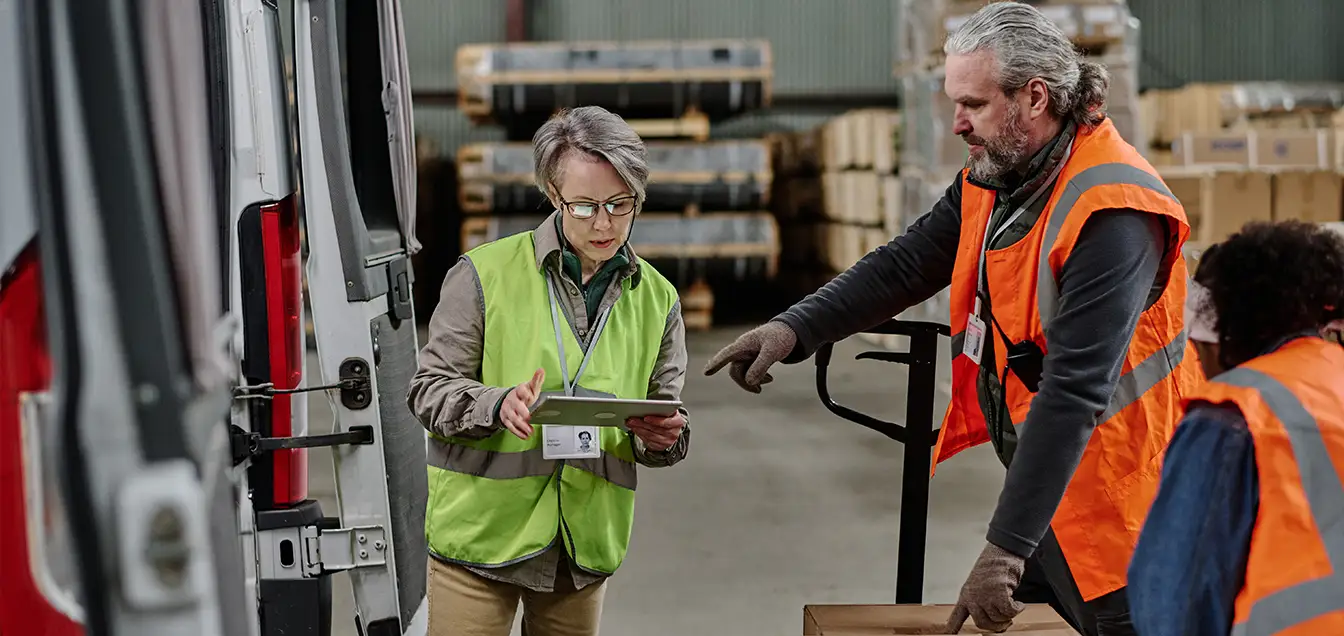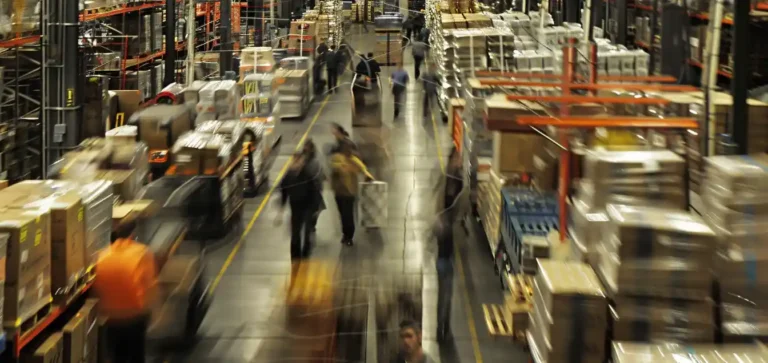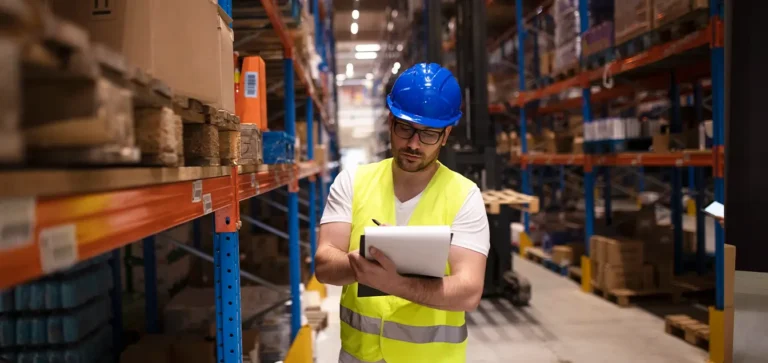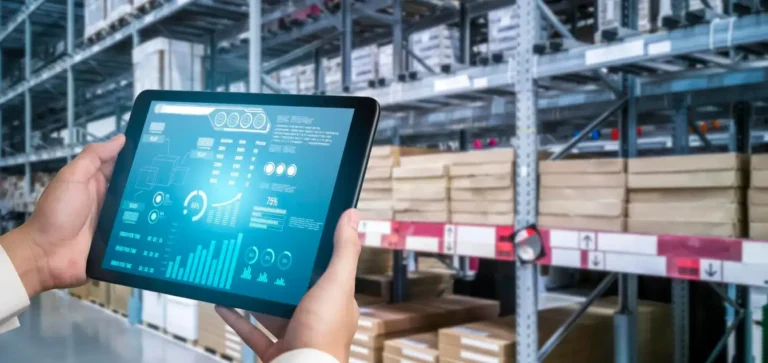Have you ever wondered why a package can travel thousands of kilometers but still arrive late at your door? That final stretch—known as last mile delivery—is where most logistics plans either shine or fail.
In 2026, this stage has become more complex than ever. Canadian consumers expect faster, cheaper, and more transparent deliveries, while carriers face rising fuel costs, labor shortages, and urban congestion. These pressures explain why discussions around Challenges Facing Last Mile Carriers are dominating logistics news and boardrooms alike.
In this article, you’ll learn what’s driving these challenges, how they impact businesses and customers, and what innovative carriers—especially DelGate, the best last mile carrier in Canada—are doing to overcome them.
Table of Contents
Why Last Mile Delivery Matters More Than Ever
Last mile delivery accounts for 41–53% of total shipping costs, according to recent industry estimates. Despite being the shortest distance, it’s the most expensive and customer-visible part of the supply chain.
Moreover, eCommerce growth in Canada continues to surge. Statista reports that Canadian eCommerce revenue is projected to exceed CAD 100 billion by 2026, intensifying pressure on carriers to perform faster and better.
This makes understanding the obstacles in last mile logistics not optional—but essential.
The Core Challenges Facing Last Mile Carriers

Rising Operational Costs
Fuel prices, insurance premiums, and vehicle maintenance costs continue to climb. For small and mid-sized carriers, margins are shrinking fast.
Key cost drivers include:
- Fuel volatility
- Urban tolls and parking fees
- Failed delivery attempts
However, companies like DelGate mitigate these costs using route optimization and consolidated delivery models.
Urban Congestion and Infrastructure Strain
Canadian cities are denser than ever. Toronto, Vancouver, and Montreal consistently rank among North America’s most congested urban centers.
For carriers, this means:
- Slower delivery times
- Higher fuel consumption
- Increased driver stress
This is especially evident in specialized regions such as Last Mile Carriers in Calgary, where rapid suburban expansion has complicated routing efficiency.
Customer Expectations Are Unrealistic

Customers now expect:
- Same-day or one day delivery
- Real-time tracking
- Zero delivery fees
While these expectations boost sales, they significantly raise delivery complexity. Balancing speed with profitability has become one of the defining Challenges Facing Last Mile Carriers today.
The Last Mile Delivery Challenge in 2026
The industry often refers to a single overarching issue: The last mile delivery challenge—delivering faster at lower cost without sacrificing service quality.
For example, missed delivery windows increase redelivery rates by up to 15%, according to a 2025 McKinsey logistics study. Each failed attempt adds labour, fuel, and customer service costs.
Labor Shortages and Driver Retention
Why Drivers Are Hard to Find
Canada’s logistics sector faces a persistent driver shortage. An aging workforce and high turnover rates contribute to this issue.
Statistics snapshot (2025):
| Metric | Value |
| Average driver age | 48 years |
| Annual turnover | 28% |
| Unfilled driver roles | 22,000+ |
Moreover, last mile drivers deal with high pressure, tight schedules, and frequent customer interactions—factors that accelerate burnout.
How Shortages Impact Service Quality

When drivers are scarce:
- Routes are overloaded
- Delivery windows widen
- Customer complaints increase
This directly affects Parcel Delivery Service reliability and brand reputation.
Technology: Problem and Solution
Limited Digital Adoption
Many regional carriers still rely on outdated systems. Manual dispatching and paper-based proof of delivery slow operations and increase error rates.
However, leaders like DelGate invest heavily in:
- AI-powered route optimization
- Real-time GPS tracking
Automated customer notifications
Data-Driven Decision Making
Technology enables carriers to predict demand spikes, optimize fleet usage, and reduce failed deliveries. In fact, carriers using AI routing report up to 20% cost reduction, according to Forbes logistics insights.
(External source suggestion: Forbes or Statista logistics technology reports)
Specialized Deliveries Add Complexity
Not all packages are created equal. Certain niches bring unique challenges:
- Innovative Furniture Courier Services require careful handling and scheduled installations.
- Building material delivery involves heavy loads, special equipment, and strict safety compliance.
These services demand skilled drivers and customized logistics planning—raising both cost and operational risk.
Regional and Market-Specific Challenges
Canada’s Geographic Diversity
From dense urban cores to remote rural regions, last mile delivery Canada operations vary dramatically.
In rural areas:
- Long distances reduce route density
- Weather disruptions are frequent
- Delivery costs per package are higher
Urban areas, by contrast, struggle with congestion and access restrictions.
The Role of 3PL Providers
Many businesses outsource last mile operations to a Canada 3PL partner. While this reduces internal complexity, it also requires trust and integration.
Among the top last mile delivery service companies, DelGate stands out by combining national reach with local expertise.
Case Study: DelGate’s Last Mile Success
DelGate implemented a tech-driven last mile strategy in 2024, focusing on:
- Micro-fulfillment hubs
- AI route optimization
- Driver incentive programs
Results after 12 months:
- 18% reduction in delivery costs
- 25% faster delivery times
- 30% drop in failed deliveries
This case highlights how innovation can neutralize even the toughest Challenges Facing Last Mile Carriers.
Sustainability Pressures
Environmental responsibility is no longer optional. Canadian regulations and consumer awareness are pushing carriers toward greener operations.
Key initiatives include:
- Electric delivery vans
- Route consolidation
- Carbon tracking dashboards
While upfront costs are high, long-term savings and brand trust often justify the investment.
Comparing Traditional vs Modern Last Mile Models
| Aspect | Traditional Model | Modern Model |
| Routing | Manual | AI-powered |
| Tracking | Limited | Real-time |
| Customer Updates | Reactive | Proactive |
| Cost Efficiency | Low | High |
This shift is essential to surviving the evolving delivery landscape.
The Future Outlook for Last Mile Carriers
Looking ahead to late 2026 and beyond:
- Autonomous delivery pilots will expand
- Urban micro-hubs will become standard
- Customer personalization will increase
However, success will depend on how well carriers adapt to ongoing challenges.
Conclusion
The Challenges Facing Last Mile Carriers in Canada are real, complex, and growing. From rising costs and labor shortages to technological gaps and customer pressure, the final mile tests every part of the logistics chain.
Yet, as seen with DelGate, these challenges also create opportunities. With the right mix of technology, strategy, and customer focus, last mile delivery can shift from a cost center to a competitive advantage.
In short, adaptability—not size—will define the winners of last mile logistics in 2026.





